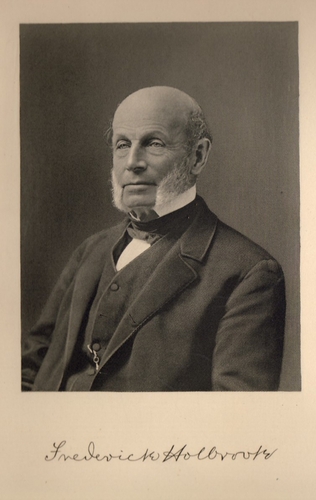BRATTLEBORO — Governor Frederick Holbrook was a Renaissance man, an agriculturalist, and an inventor; his role as a farmer was his love and avocation. The farming population, he believed, should be the basic social and economic unit of the country. In his early life in Windham County, “he worked upon the farm and knew what was meant by manual labor,” wrote Brattleboro historian Mary Rogers Cabot.
Holbrook's accomplishments were many, and he ranked near the top of those noted agriculturalists of his time in the nation. In 1850, he was one of the founders of the Vermont State Agricultural Society. Such societies created the county fairs in the state as the primary educational events for farmers and their families, and many still exist to this day.
As a State Senator from Windham County in 1849 and 1850, he was a member of a Joint Committee on Agriculture that recommended to the president and to Congress that a bureau of agriculture be established. This impetus is said to have led to the creation of the U.S. Department of Agriculture, which also exists today.
In 1861, Holbrook was elected as governor of Vermont, serving during one of the most trying times in U.S. history: the Civil War period.
As a friend and advisor to President Abraham Lincoln, he urged the president to provide hospitals for its soldiers. Vermont was the first state in the Union to do so, and due to his efforts, many survived the war.
* * *
Even though Frederick Holbrook served as governor with distinction during the war, he continued to focus his attention on his love for farming and agriculture after completing two full terms.
He improved many agricultural devices and invented several plows. His Holbrook Swivel Plow was known throughout the country, just as the John Deere plow was also known during this period.
It is said that he read widely on agricultural topics from an early age, especially their scientific side. With this knowledge and practical experience as a farmer, he wrote articles for the many noted farming publications of the time such as The Cultivator in Albany, The New England Farmer, and Country Gentleman.
It is said that he was active in his local community of Brattleboro until his death in 1909.
Based upon his many accomplishments, the late Governor Frederick Holbrook of Windham County, Vermont was inducted posthumously into the Vermont Agricultural Hall of Fame.
